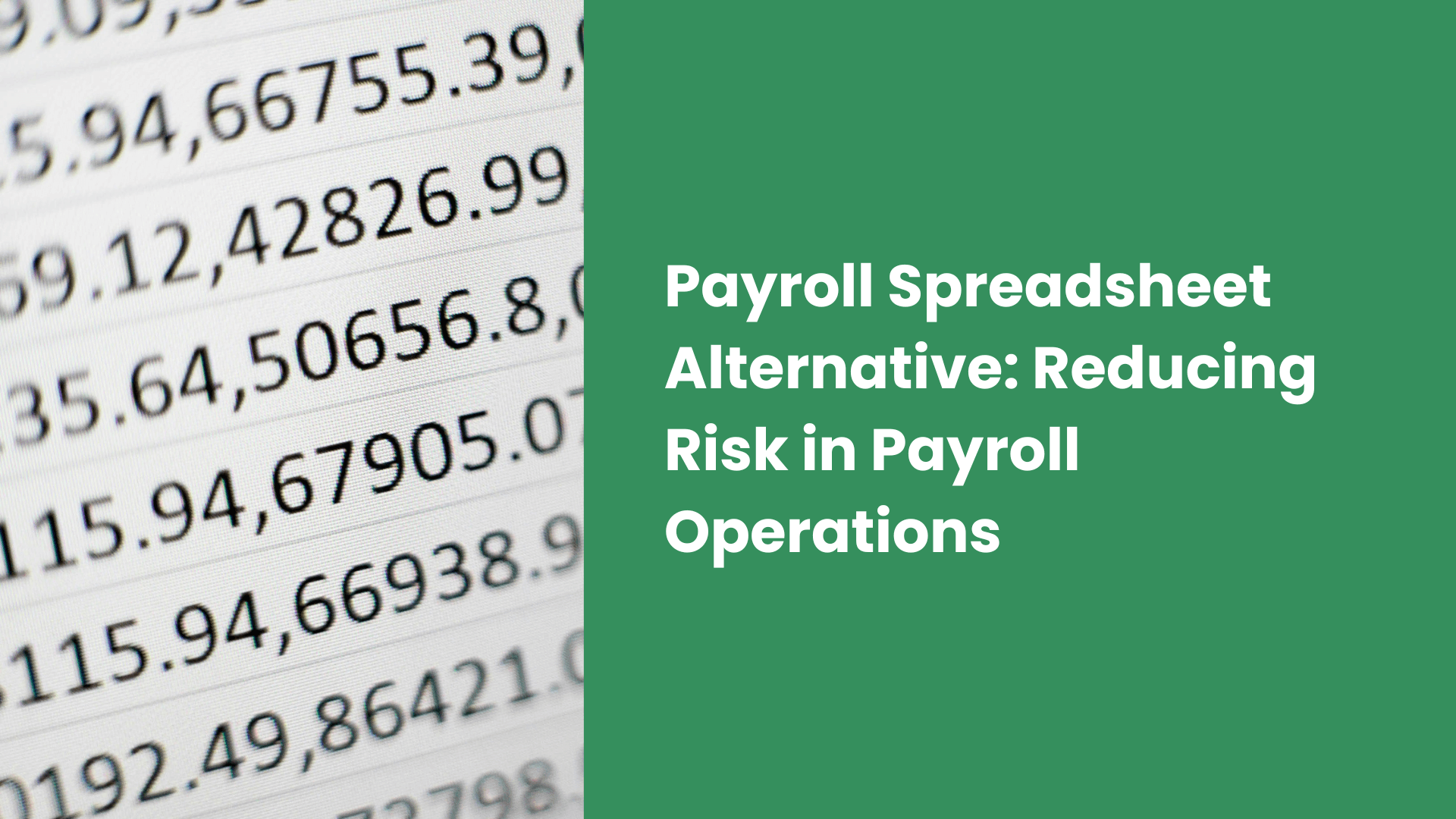The Ultimate Payroll Compliance Checklist: 7 Things Businesses Can't Afford to Miss
Payroll isn't just about paying staff; it’s a tightrope walk of deadlines, complex legislation, and strict HMRC rules. Getting it wrong leads to fines, back payments, and seriously unhappy employees.
As we move through the 2024/2025 tax year, here are the seven critical compliance areas every business must review, plus how a robust system can keep you on the right side of the law.
1. Get Your Statutory Rates Right (Minimum Wage & Pay)
The most fundamental rule: you must pay your staff correctly. The National Living Wage (NLW) and National Minimum Wage (NMW) change regularly and are based on age.
- Action: Ensure your systems reflect the latest hourly rates for all age bands. Pay less than the minimum wage, and you face serious penalties and public exposure.
- Key Law: National Minimum Wage Act 1998 (and subsequent increases).
2. Master Real Time Information (RTI) Reporting
RTI is the cornerstone of modern payroll. You must send information to HMRC on or before the day you pay your employees using a Full Payment Submission (FPS).
- Action: Verify that your process reliably submits an FPS every time you run payroll. Late filing can result in an automatic penalty notice.
- Key Law: PAYE Regulations 2003 (as amended by RTI).
3. Review Holiday Pay for Irregular Hours Workers
Recent changes have clarified the rules for calculating holiday entitlement and pay for employees with irregular hours or part-year contracts. You can no longer use the '12.07%' accrual method in all cases.
- Action: Check how you calculate and pay annual leave for workers with variable hours. Ensure you are using the correct 52-week reference period or the new accrual method where applicable (for leave years starting on or after 1 April 2024).
- Key Law: The Employment Rights Act 1996 (as affected by the Harpur Trust v Brazel ruling and subsequent legislation).
4. Stay on Top of Auto-Enrolment & Pensions
As an employer, you have a legal duty to provide a workplace pension scheme and automatically enrol eligible staff. This duty extends beyond the initial set-up to cyclical re-enrolment every three years.
- Action: Do you know your company’s re-enrolment date? Are you using the correct minimum contribution rates? The Pensions Regulator is strict on non-compliance.
- Key Law: Pensions Act 2008.
5. Correctly Classify Workers (Employment Status)
The distinction between an employee and an independent contractor is crucial for tax and rights. Misclassification means incorrectly calculating tax, National Insurance, and holiday entitlement.
- Action: For every non-PAYE worker, ensure you have documentation that legally justifies their contractor status (especially relevant for IR35 compliance for medium/large businesses).
- Key Law: The Finance Act 2017 (Off-Payroll Working Rules / IR35) and common law employment tests.
6. Secure & Audit Sensitive Payroll Data
Payroll holds the most sensitive data in your business (salaries, bank details, tax codes). Compliance isn't just about HMRC; it's about data security under GDPR. Relying on unsecured email or shared spreadsheets for transferring pay changes is a huge risk.
- Action: Implement a secure, auditable process for collecting, approving, and storing all pay-related changes and communications.
- Key Law: General Data Protection Regulation (GDPR) / Data Protection Act 2018.
7. Maintain a Full, Traceable Audit Trail
When HMRC or The Pensions Regulator asks for proof, 'we're pretty sure' won't cut it. You need a detailed, time-stamped record of every change, approval, and submission relating to an employee's pay.
- Action: Review your current system: Can you instantly see who requested a pay change, when it was approved, and who processed it? Manual processes often leave gaps in this essential audit trail.
The Compliance Solution: Why Process is Key
Your main payroll software (e.g., BrightPay, Sage) handles the calculations and submissions. However, the biggest compliance risks occur before the numbers are crunched—during the collection of data:
- Collecting pay changes via email.
- Using shared spreadsheets with no version control.
- Lacking a clear, trackable approval system for bonuses or salary increases.
This is where a dedicated management platform becomes essential for the payroll function.
How We Help You Stay Compliant
Changepen is the payroll management platform designed specifically to secure and standardise your payroll workflow, sitting securely between your clients/HR and your payroll software.
- Eliminates Unsecured Data: It removes the risk of emailing sensitive data by using secure, branded portals for clients and employees to submit all payroll changes. This is crucial for GDPR compliance.
- Built-in Validation: It catches errors before the data reaches the payroll team, reducing the chance of miscalculated pay and avoiding fines (Rule 1 & 7).
- Full Audit Trail: Every change, instruction, and approval is automatically logged and time-stamped in an unchangeable record. This provides an instant, traceable audit trail required by HMRC and regulators (Rule 6 & 7).
- Clarity & Deadlines: By centralising communications and tracking the status of every pay run, Changepen ensures you have the correct, final data in time to meet your RTI deadlines (Rule 2).
Staying compliant in the UK's regulatory landscape is a continuous process, not a one-off event. By mastering these seven areas and leveraging intelligent platforms like Changepen, you can transform payroll from a compliance burden into a smooth, secure, and fully auditable function.


